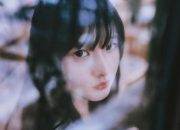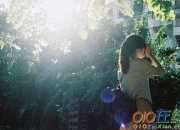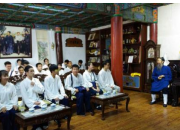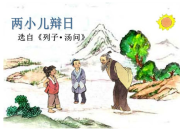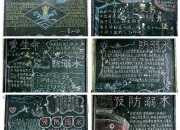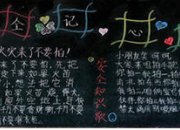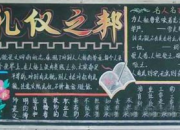万圣节英文作文
时间:2021-08-31精选万圣节英文作文9篇
在日常生活或是工作学习中,大家对作文都再熟悉不过了吧,作文可分为小学作文、中学作文、大学作文(论文)。你所见过的作文是什么样的呢?以下是小编精心整理的万圣节英文作文9篇,欢迎大家借鉴与参考,希望对大家有所帮助。
万圣节英文作文 篇1
Halloween means Hallows' Evening.It is the evening before All Hallows' Day (now called All Saints'Day) ,a Christian holiday,celebrated on the November 1st.
History traces Halloween back to the ancient religion of the Celtics.The Celts were the ancestors of the present-day Irish,Welsh and Scottish people.In the 5th century BC,in Celtic Ireland,summer officially ended on October 31st.On the November 1st,Celtic peoples celebrated the festival of Samhain,which marked the beginning of winter and the Celtic New Year.Celts thought the division between the natural world and the supernatural world became very thin and all time and space was abruptly suspended on October 31st,and then the spirits of the died would come back and move freely looking for living bodies to possess.
万圣节英文作文 篇2
lanterns, vampires and haunted houses. But do you know the origin of Halloween? Why does it fall on 31 October? What kind of festival is it? Why is it so creepy?
Halloween dates back to a Celtic festival called Samhain. November 1 is the new year of the Celts, who lived in Europe more than a thousand years ago. This is the day which marked the end of summer and harvest. The Celts believed that on the night of October 31, ghosts of the dead would return to earth. The Celts celebrated Samhain by dressing up in costumes with animal heads and having bonfires. Many Celts settled in Britain and Ireland, where the festival became popular. Those who moved to America took the tradition with them.
Nowadays, most people celebrate Halloween but only for fun. They are not worried about ghosts. Kids in America will dress up as devils or angels and will go from house to house calling "Trick or treat", playing mischievous tricks and getting sweets. Americans spend more money on Halloween than Christmas! In 20xx, more than HK$45 billion was spent on Halloween. And HK$15 billion of that was spent on candy alone!!!
Kids in Britain also dress up at Halloween. They visit houses, sing songs or tell a joke to get sweets. Many go to Halloween parties and play games like "ducking for apples". You must pick up an apple in water but you can only use your mouth. Try it!
万圣节英文作文 篇3
Halloween (or Hallowe'en) is an annual holiday observed on October 31, which commonly includes activities such as trick-or-treating, attending costume parties, carving jack-o'-lanterns, bonfires, apple bobbing, visiting haunted attractions, playing pranks, telling scary stories, and watching horror films arevery happy.
Halloween (or Hallowe'en) is an annual holiday observed on October 31, which commonly includes activities such as trick-or-treating, attending costume parties, carving jack-o'-lanterns, bonfires, apple bobbing, visiting haunted attractions, playing pranks, telling scary stories, and watching horror films.
History
Historian Nicholas Rogers, exploring the origins of Halloween, notes that while "some folklorists have detected its origins in the Roman feast of Pomona, the goddess of fruits and seeds, or in the festival of the dead called Parentalia, it is more typically linked to the Celtic festival of Samhain, whose original spelling was Samuin (pronounced sow-an or sow-in)".The name is derived from Old Irish and means roughly "summer's end".Snap-Apple Night (1832) by Daniel Maclise.Depicts apple bobbing and divination games at a Halloween party in Blarney, Ireland.The name 'Halloween' and many of its present-day traditions derive from the Old English era.
The word Halloween is first attested in the 16th century and represents a Scottish variant of the fuller All-Hallows-Even ("evening"), that is, the night before All Hallows Day.[4] Although the phrase All Hallows is found in Old English (ealra hālgena mssedg, mass-day of all saints), All-Hallows-Even is itself not attested until 1556.
万圣节英文作文 篇4
Days and days past, I’m not a child any longer. But I still remember that Halloween, 31st October XX. That was Saturday. I went to study English with an American girl named Debby as usual.
We had 5 students altogether. Before that week, Debby had already told us to learn something about Halloween ourselves. On that day, Debby spent an hour describing this American festival for us, such as “trick or cheat”, pumpkin and even, she took a pumpkin with her. First she took out a finished pumpkin lantern.
That was really beautiful and ugly, we liked it so much. Then she taught us how to make a pumpkin lantern by ourselves. We each held a small knife, learnt to cut and draw something on that pumpkin. Finally, we made it and put a short candle into it. That was truly happy. And the most surprising thing was that the lantern was a present for that day’s super student. Who will that be? My god! That was me!
Do you know how excited I was then? I held it, jumping and shouting. That was the most unforgettable day to me. And I will not forget it, never!
万圣节英文作文 篇5
Halloween, children can be happy, they can go to someone else to look at them, candy, one with pumpkin hat, wearing a ghost suit, some really terrible, but you listen to their voice, a voice very cute. "Let's go get the candy."!" The little ghost at the head can't wait. "Blunt!"!" The little boys finally set off, and they went to another's house to ask for sweets.
Time went by, and finally it was time for the meeting. They came with baskets of candy. Look, their baskets are full. But they do not eat their own, but good team walked to the East, to a large room door, the first child said: "the bells are ringing!" The door opened, and they went in, an aunt excitedly ran over and said: "you want a lot of sugar!" These little ghosts happy nodded, head of the little ghost took off the pumpkin hat, he was a little boy, he ran to the side of the aunt, said: "Mom, I have tried my best, I can only call so much buddy to candy, do not know enough." "The bell has been very much, go, mother take you to those poor children in the family to send candy." "Auntie, let's go, too."!" Cried the little boy's companion. "Well, let's go together."."
They set foot on the road to the poor children together......
万圣节英文作文 篇6
Halloween has always been a holiday filled with mystery, magic and superstition. It began as a Celtic end-of-summer festival during which people felt especially close to deceased relatives and friends. For these friendly spirits, they set places at the dinner table, left treats on doorsteps and along the side of the road and lit candles to help loved ones find their way back to the spirit world.
Today's Halloween ghosts are often depicted as more fearsome and malevolent, and our customs and superstitions are scarier too. We avoid crossing paths with black cats, afraid that they might bring us bad luck. This idea has its roots in the Middle Ages, when many people believed that witches avoided detection by turning themselves into cats. We try not to walk under ladders for the same reason. This superstition may have come from the ancient Egyptians, who believed that triangles were sacred; it also may have something to do with the fact that walking under a leaning ladder tends to be fairly unsafe. And around Halloween, especially, we try to avoid breaking mirrors, stepping on cracks in the road or spilling salt.
But what about the Halloween traditions and beliefs that today's trick-or-treaters have forgotten all about? Many of these obsolete rituals focused on the future instead of the past and the living instead of the dead. In particular, many had to do with helping young women identify their future husbands and reassuring them that they would someday--with luck, by next Halloween!--be married.
In 18th-century Ireland, a matchmaking cook might bury a ring in her mashed potatoes on Halloween night, hoping to bring true love to the diner who found it. In Scotland, fortune-tellers recommended that an eligible young woman name a hazelnut for each of her suitors and then toss the nuts into the fireplace. The nut that burned to ashes rather than popping or exploding, the story went, represented the girl's future husband. (In some versions of this legend, confusingly, the opposite was true: The nut that burned away symbolized a love that would not last.) Another tale had it that if a young woman ate a sugary concoction made out of walnuts, hazelnuts and nutmeg before bed on Halloween night, she would dream about her future husband. Young women tossed apple-peels over their shoulders, hoping that the peels would fall on the floor in the shape of their future husbands' initials; tried to learn about their futures by peering at egg yolks floating in a bowl of water; and stood in front of mirrors in darkened rooms, holding candles and looking over their shoulders for their husbands' faces.
Other rituals were more competitive. At some Halloween parties, the first guest to find a burr on a chestnut-hunt would be the first to marry; at others, the first successful apple-bobber would be the first down the aisle.
Of course, whether we're asking for romantic advice or trying to avoid seven years of bad luck, each one of these Halloween superstitions relies on the good will of the very same "spirits" whose presence the early Celts felt so keenly. Ours is not such a different holiday after all!
